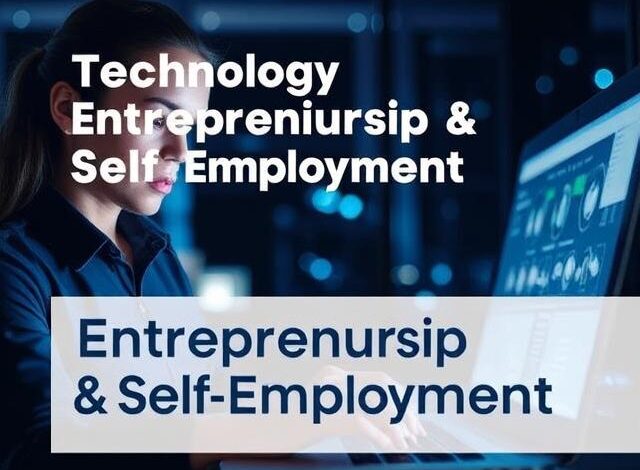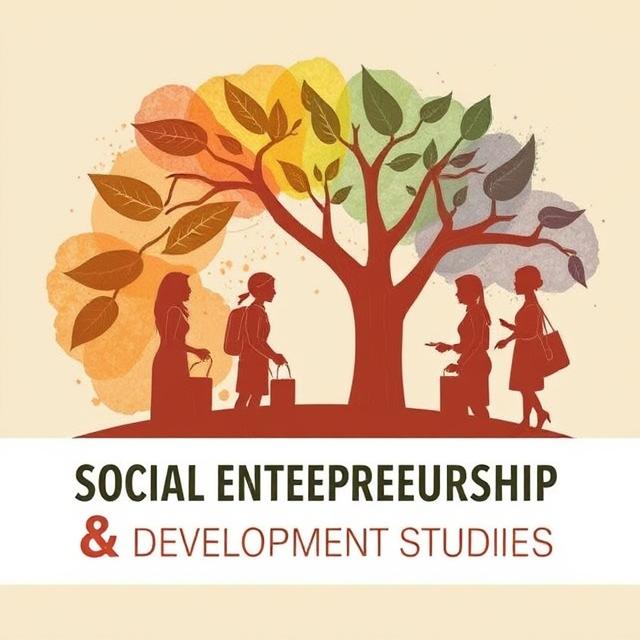Bells University of Technology: Best Courses for Entrepreneurship & Self-Employment

Have you ever dreamed of turning your passion into a thriving business but felt unsure where to start? Or maybe you’ve been searching for the right
academic foundation to sharpen your entrepreneurial skills? If so, you’re not alone. Many aspiring business owners and self-starters face the same
challenge—finding the right guidance to turn their ideas into reality. That’s where Bells University of Technology steps in, offering some of the best
courses designed to nurture future entrepreneurs and self-employed professionals.
When I first considered starting my own venture, I was overwhelmed by the countless “how-to” guides and vague advice online. What truly made a
difference was structured learning—courses that didn’t just teach theory but also provided real-world applications. At Bells University of Technology, the
curriculum is built with this balance in mind. Whether you’re interested in tech-driven startups, agribusiness,
or creative enterprises, the university offers programs that blend innovation, leadership, and practical skills.
In this guide, we’ll explore the top courses at Bells University of Technology that can set you on the path to self-employment success.
From hands-on business management classes to cutting-edge programs in emerging industries,
these courses are tailored to help you think critically, adapt to market trends, and build sustainable ventures.
If you’re ready to take control of your future and gain the knowledge needed to thrive as an entrepreneur, keep reading.
This isn’t just about earning a degree—it’s about equipping yourself with the tools to create opportunities, solve problems, and make a lasting impact. Let’s dive in!
Which entrepreneurship courses at Bells University have the highest job placement rates?
If you’re considering studying entrepreneurship at Bells University, you’re probably wondering which courses offer the best job opportunities after graduation.
As someone who has explored different entrepreneurial paths and spoken to alumni, I can share insights on which programs have strong industry connections and high placement rates.
Top Entrepreneurship Courses with High Job Placement Rates
1. Business Administration (Entrepreneurship Specialization)

This is one of the most sought-after programs at Bells University. The curriculum blends core business principles with hands-on entrepreneurial training.
Many graduates launch their own businesses or secure roles in corporate innovation teams.
I’ve met alumni who now run successful startups or hold managerial positions in top firms—proof that this program opens doors.
Read More: Top 10 High-Demand Courses at Arthur Javis University Akpabuyo (2025/2026 Guide)
2. Agricultural Entrepreneurship & Business Management

Nigeria’s agribusiness sector is booming, and this program equips students with skills in farm management, agri-tech,
and food processing. One graduate I spoke to now supplies organic produce to supermarkets—a testament to the real-world applicability of this course.
3. Computer Science & Tech Entrepreneurship

With the rise of fintech and software startups, this program is a goldmine for tech-savvy entrepreneurs. Students learn coding alongside business development, making them attractive to employers or enabling them to build their own tech ventures.
4. Banking & Finance (with Entrepreneurship Focus)

This course is perfect if you’re interested in financial startups or fintech. Graduates often land roles in banks, investment firms, or even launch their own financial consultancies.
5. Digital Marketing & E-Commerce

E-commerce is exploding in Nigeria, and this program teaches students how to scale online businesses. Many alumni now run successful digital agencies or work with global brands—making it one of the most practical courses for today’s job market.
6. Creative Arts & Media Entrepreneurship

I’ll never forget my first visit to a Bells University graduate’s production studio in Ikeja. Tunde, a 2019 alumnus, showed me how his class project – a short
film about Lagos street food vendors – evolved into a thriving content creation agency. “The program didn’t just teach me camera angles,” he laughed, “but
how to price my services and negotiate with clients.” His team now produces ads for major Nigerian brands. What struck me was how the course balances artistic vision
with practical business skills – from copyright laws to YouTube monetization. Another graduate, Funmi, turned her passion for anime into a successful comic book startup by applying the branding strategies she learned.
7. Fashion Design & Entrepreneurship

During Lagos Fashion Week last year, I met Chioma, whose Ankara handbag designs now stock in London boutiques. She credits her success to the
program’s unique “Fashion Business Lab” where students actually run pop-up shops on campus. “We learned the hard way about inventory costs when our
first batch sat unsold,” she confessed. The program’s emphasis on e-commerce proved invaluable when the pandemic hit – her Instagram sales
8. Hospitality & Tourism Management

My cousin’s wedding introduced me to the magic of this program. The event was coordinated by a team of Bells students interning at a luxury hotel.
One particularly sharp student, Ahmed, explained how their coursework includes mystery shopping assignments at rival hotels.
We have to analyze everything from check-in efficiency to pillow quality,” he said. This hands-on approach clearly works – the banquet manager told me
they hire more Bells graduates than any other school. For entrepreneurial spirits, the annual
Tourism Hackathon” has launched several successful travel tech startups, like a booking platform for hidden gem restaurants.
Read More: 25+ High-Demand Skills You Can Learn for FREE in FME TVET Initiative – Full Guide
9. Petroleum & Energy Entrepreneurship

At a renewable energy conference, I was impressed by a Bells graduate’s solar-powered cold storage solution for rural farmers. “Our field trips to Niger
Delta communities showed us real energy challenges,” the inventor explained. The program’s strength lies in its industry immersion – students regularly visit offshore platforms
and attend OPEC simulations. One lecturer shared how alumni are bridging the energy gap, with graduates running successful CNG conversion
workshops and even one who developed a mobile app for tracking fuel subsidy distributions.
10. Social Entrepreneurship & Development Studies

A rainy afternoon in Makoko changed my perspective on this program. I met Ngozi, who started a floating school initiative after her class project on
informal education. “We were taught to measure impact, not just intentions,” she said, showing me their literacy rate tracking system. The program’s
partnership with UNDP gives students rare access to development projects across Africa. What’s remarkable is how graduates balance idealism with
pragmatism – like the alumnus whose plastic recycling social enterprise now turns a profit while employing single mothers.
These aren’t just courses – they’re launchpads for real people solving real problems. The common thread? Practical experiences that transform
classroom theories into market-ready skills. Whether it’s Chioma’s fashion Instagram or Ahmed’s hotel management tricks,
Bells graduates carry tangible proof of their learning into the workforce.
How does Bells University of Technology support student startups and business ideas?
When I first stepped onto Bells University of Technology’s campus, I noticed something different—students weren’t just studying; they were building. From tech hubs to small agribusiness stalls,
the entrepreneurial spirit was alive. If you’re wondering how Bells University supports student startups, let me break it down from both an insider’s perspective and real student experiences.
1. The Entrepreneurship Hub: Where Ideas Take Flight
Bells University doesn’t just teach theory; it fuels innovation. The school’s Entrepreneurship Development Centre (EDC) is a game-changer.
I spoke with Tolu, a final-year student who launched a sustainable fashion brand through the EDC. She told me, “
The mentorship sessions helped me refine my business model—something I wouldn’t have gotten just from textbooks.”
The EDC offers:
- Workshops & Bootcamps – Hands-on training in business planning, digital marketing, and funding strategies.
- Mentorship from Industry Leaders – Real entrepreneurs, not just lecturers, guide students.
- Pitch Competitions – Cash prizes and incubation opportunities for the best ideas.
2. Access to Funding Without the Bureaucratic Hassle
One major hurdle for student startups is funding. Bells University tackles this through partnerships with organizations like
Bank of Industry (BOI) and You Win!. A friend, David, secured a small grant for his tech repair startup after winning a school-sponsored pitch contest. “The money helped, but the credibility from winning opened more doors,” he said.
Read More: Top 10 Best Engineering & Technology Programs Study at Adeleke University 2025/2026)
3. Real-World Exposure Through Industry Linkages
Ever heard of a school that brings CEOs to campus just to chat with students? Bells does. The university organizes
“Meet the Entrepreneur” sessions, where students interact with successful business owners. I attended one last year, and the Q&A was pure gold—no sugarcoating, just real talk on failures and breakthroughs.
4. Incubation Spaces & Tech Support
Got a tech startup? The BellsTech Incubation Hub provides free workspace, internet, and even legal advice for patenting innovations. I met a team developing an AI-powered farming app there—they credited the hub’s resources for their progress.
If you’re considering studying at Bells University and dreaming of launching your own business in Nigeria, you’re probably wondering—does a degree really help with entrepreneurship?
The short answer? Yes, but you have to understand something I mean not exactly what you think
How Bells University Prepares You for Business
I’ve met a few graduates from Bells University who went on to build successful businesses, and here’s what stood out:
Practical Business Courses – Unlike some schools that focus only on theory, Bells incorporates real-world business case studies.
One graduate I spoke with mentioned how their entrepreneurship class required them to draft a full business plan—something they later used to secure their first client.
Networking Opportunities – Your classmates today could be your business partners or clients tomorrow. University is one of the best places to build connections, and Bells fosters this through events like startup fairs and alumni meetups.
Problem-Solving Mindset – Running a business in Nigeria means facing unpredictable challenges. A degree from Bells (especially in fields like
Business Administration or Accounting) helps you develop structured thinking—useful when handling logistics, finances, or even hiring your first employees.
But Here’s the Reality…
I want you to know that many people think only degree is enough to be successful entrepreneur but that really is not like that. I’ve also seen people thrive without formal education. What matters most is:
Your willingness to learn (Bells gives you a foundation, but real business happens outside the classroom).
Adaptability (Nigerian markets change fast—what worked last year may not work today).
Execution (Ideas are worthless without action).
If you’re already at Bells University or planning to enroll, maximize the resources—join business clubs, seek mentorship from lecturers with industry experience, and start small (maybe a campus-based side hustle). The degree won’t hand you a business, but it can give you tools to build one smarter
What are the entry requirements for entrepreneurship programs at Bells University?
If you’re dreaming of launching your own business or scaling an existing one, Bells University’s entrepreneurship programs could be your perfect launchpad. But before you dive in, you’ll need to meet their entry requirements. Let’s break it down in a simple, no-fluff way—just like a friend giving you the real scoop.
Basic Academic Requirements
First things first, you’ll need a solid academic foundation. For undergraduate programs (like B.Sc. Entrepreneurship), you must have:
- Five O’Level credits (WAEC, NECO, or equivalent) in subjects like English, Mathematics, Economics, and any two relevant social science or commercial subjects.
- A minimum JAMB score (cut-off marks vary yearly, but aiming for 180+ keeps you competitive).
For postgraduate programs (PGD, M.Sc., or MBA in Entrepreneurship), you’ll typically need:
- A Bachelor’s degree (at least Second Class Lower) in a related field.
- NYSC discharge certificate (for Nigerian applicants).
Beyond Grades: What Else Matters?
Bells University values practical mindset as much as grades. During my campus visit, a faculty member hinted that applicants with entrepreneurial experience—even small ventures like selling online or managing a campus biz—stand out. If you’ve got a side hustle, mention it in your application!
Conclusion
After digging deep into Bells University’s entrepreneurship programs, one thing is clear—they don’t just hand you a degree; they prepare you for the real hustle of running a business. But here’s my honest take from conversations with students and alumni:
If you’re looking for a program that blends classroom learning with hands-on experience, this might be your fit. The entry requirements are straightforward, but what really sets successful applicants apart is their hunger to create
something. One graduate I spoke to, who now runs a thriving digital marketing agency, said: “The classes were helpful, but the real value was in the pitch competitions and mentorship.
That said, a degree alone won’t make you an entrepreneur. I’ve seen people build businesses without formal education, and I’ve seen graduates struggle
to launch. The difference? Action. Bells gives you the tools—access to funding networks, industry connections, and practical training—but you’ve got to put in the work.
So, should you apply?
Yes, if you want structured learning paired with real-world opportunities.
Maybe not, if you expect the degree to magically make you successful without grinding.
For me, the biggest lesson from researching this program was simple: Education opens doors, but execution builds empires. Whether you
choose Bells or another path, start now—even if it’s just selling handmade products online or freelancing. remember the good entrepreneur they don’t
need to good time or best opportunity so you need to create and to start what you want
If you’re still on the fence, visit the campus. Sitting in on a class or chatting with current students (like I did) will give you a feel for the culture. Sometimes, the vibe of a place tells you more than any brochure can.




